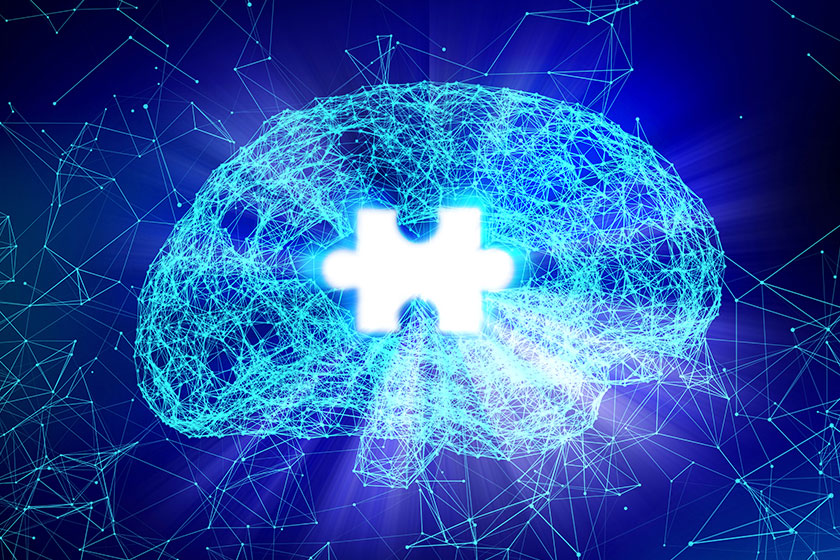Understanding the differences between an Alzheimer’s brain and a normal brain can be crucial for you and your loved ones when considering memory care options. Alzheimer’s disease profoundly impacts brain structure and function, leading to significant cognitive decline. This post explores these differences to help you better understand the effects of the disease.
Brain Structure and Function
The human brain is an incredibly complex organ, responsible for every thought, memory, and action. In a normal brain, neurons communicate efficiently, synapses function smoothly, and neurotransmitters are balanced, allowing for proper cognitive function.
However, in an Alzheimer’s brain, these processes are disrupted. Plaques and tangles, hallmarks of the disease, interfere with neuron communication and lead to cell death.
The Hallmarks of Alzheimer’s
Plaques are deposits of a protein fragment called beta-amyloid that build up in the spaces between nerve cells. Tangles, on the other hand, are twisted fibers of another protein called tau that accumulate inside cells.
In Alzheimer’s brains, these plaques and tangles form extensive networks, obstructing the normal function and communication of neurons. This disruption leads to the loss of memory, confusion, and other cognitive difficulties that characterize the disease.
Memory Loss and Cognitive Decline
One of the most noticeable differences between an Alzheimer’s brain and a normal brain is the degree of memory loss. While occasional forgetfulness is a normal part of aging, Alzheimer’s disease causes severe memory impairment.
This impairment is due to the damage and eventual death of neurons in the hippocampus, the brain region essential for forming and retrieving memories. Over time, this leads to a significant decline in the ability to perform everyday tasks and recognize familiar people and places.
Impact on Daily Life
The cognitive decline associated with Alzheimer’s disease affects every aspect of daily life. Simple activities that you and your loved ones take for granted, such as dressing, eating, and bathing, become increasingly difficult.
This decline is not just limited to memory loss but extends to problem-solving skills, judgment, and even basic motor functions. Understanding these challenges highlights the importance of specialized care and support for those affected by Alzheimer’s.
Emotional and Behavioral Changes
In addition to cognitive symptoms, Alzheimer’s disease can cause significant emotional and behavioral changes. Individuals may experience mood swings, depression, anxiety, and irritability. These changes are often a result of the frustration and confusion caused by the disease’s cognitive impairments. In contrast, a normal brain regulates emotions more effectively, allowing for stable moods and appropriate responses to stress and other stimuli.
Diagnosis and Progression
Diagnosing Alzheimer’s involves a combination of medical history, cognitive tests, and brain imaging. MRI and PET scans can reveal the extent of brain atrophy and the presence of plaques and tangles. In a normal brain, these imaging techniques would show well-defined structures and minimal atrophy.
The progression of Alzheimer’s disease is typically slow but relentless, with symptoms worsening over time and significantly impacting the quality of life.
Preventive Measures and Research
Research into Alzheimer’s disease is ongoing, with scientists exploring various preventive measures and treatments. While there is no cure yet, certain lifestyle choices may help reduce the risk of developing the disease. These include maintaining a healthy diet, regular exercise, mental stimulation, and social engagement. Understanding the differences between an Alzheimer’s brain and a normal brain can empower you to make informed decisions about your and your loved ones’ health.
The Role of Care and Support
Living with Alzheimer’s disease requires comprehensive care and support. The emotional and physical toll on both the affected individuals and their families can be immense. Professional assistance is often necessary to ensure safety, provide daily care, and maintain a dignified quality of life.
This support extends beyond medical treatment to include senior activities that stimulate the mind and body, fostering a sense of community and engagement.
Quality of Life and Memory Care
Choosing a memory care community that understands the complexities of Alzheimer’s disease can make a significant difference. Our community provides tailored care and support to address the unique needs of individuals with Alzheimer’s, focusing on enhancing their quality of life.
We offer health and fitness programs designed to maintain physical well-being and a variety of activities and events to engage residents mentally and socially. Our amenities are crafted to create a comfortable and supportive environment, ensuring that you and your loved ones receive the best possible care.
If you are considering memory care for a loved one with Alzheimer’s, we invite you to learn more about our community. Contact us today to discover how we can provide the support and care your family needs.







